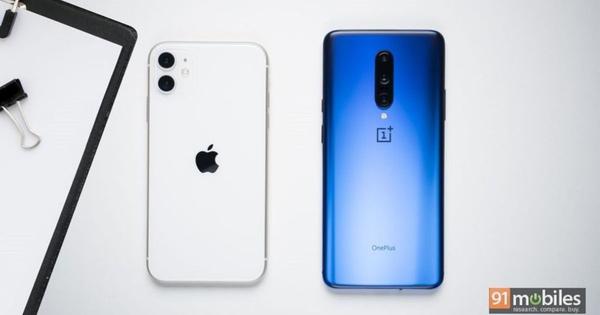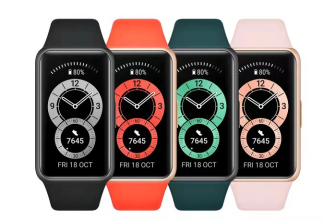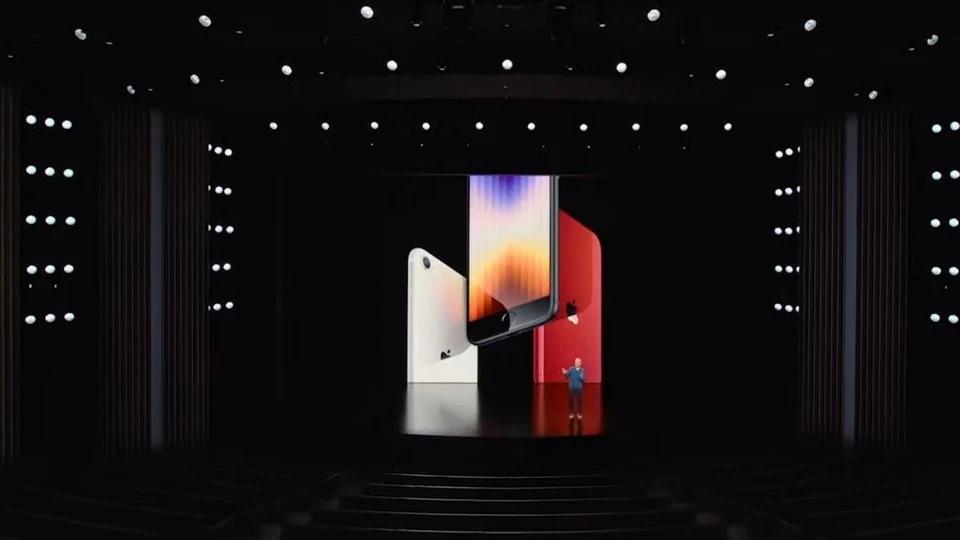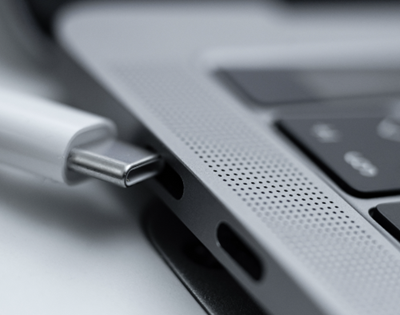We tested Samsung’s newest flagship phones. Here are 6 things you should know about the Galaxy S22s.
If you’ve seen one flashy gadget announcement, you’ve seen them all. They usually start with broad, upbeat updates from whoever’s in charge. Then come the dramatic beauty shots of whatever’s being unveiled, followed by a little too much detail about all the new features and maybe a couple of illustrative skits.
Help Desk: Technology coverage that makes tech work for youArrowRightRepeat the process for all the other new products, toss in some proclamations about sustainability, and there you go: another launch event for the books.
Living with the stuff that is announced is a little different. The excitement lingers for a bit, then wears off entirely, and then you actually start seeing your new gadget for what it really is. And for Samsung’s new Galaxy S22 and S22 Ultra smartphones, that means living with devices that really aren’t all that different from ones we’ve seen before.
AdvertisementStory continues below advertisementThat’s not to say they’re bad phones — they’re not! But Samsung mostly stuck to by-the-book upgrades here, which can make it hard to tell how truly helpful the changes can be before you go out and nab one of the phones for yourself. To help minimize your chances of feeling some buyer’s remorse, I’ve spent a week testing these phones for performance, camera quality, battery life and more. Here are six things you should know about the Samsung Galaxy S22 and S22 Ultra before you even think of buying one.
The flashiest new phone Samsung announced was the Galaxy S22 Ultra, but let’s be honest here: it’s a Galaxy Note. And if you already were a Note fan, your decision just became a whole lot easier. This is the phone for you.
Story continues below advertisementFor everyone else, the S22 Ultra makes sense only if there’s room in your life for a gigantic, super-smooth 6.8-inch screen and Samsung’s S Pen stylus.
AdvertisementYou can use the S Pen in place of your finger to poke around, as well as to jot down notes and scribble on this big screen. It also makes some mundane tasks, such as selecting text to copy, a breeze.
In some cases, though, the S Pen doubles as a sort of magic wand. Trying to take a picture of you and friends? Prop the Ultra up somewhere, and click the S Pen’s button to snap a photo. What about taking screenshots, or opening your recent apps? Just waggle the S Pen around, and it’s done.
To me, these “Air actions” make the S Pen more than just a gimmick; it’s another way to control your phone even when you’re not holding it. It’s wonderful, but for many people, it can feel completely extraneous.
Story continues below advertisementThe Galaxy S22 Ultra is absolutely enormous by smartphone standards: It’s a little taller and a hair thicker than Apple’s already-big iPhone 13 Pro Max. For some people, that size is the whole point, but unless you’re in love with the idea of scribbling on your smartphone, the smaller S22, with its 6.1-inch screen, is far more comfortable to hang onto. (Honestly, it’s the one I’d pick out of all of Samsung’s new gadgets.)
All versions of the S22 in the United States use the new Snapdragon 8 Gen 1 chipset from Qualcomm. That means these phones will rank among the most powerful Android phones you’ll see this year.
AdvertisementI’ve used the S22 and S22 Ultra to play games including “Genshin Impact,” edit and share 4K video clips, and run up to three apps on screen at the same time. (I do not recommend doing this, but it’s possible.) And at no point did either of these phones stutter or falter, although the Ultra’s body can become surprisingly warm when you really start to push it.
Story continues below advertisementBut here’s a question worth chewing on: How much power do you actually need? For what do you actually use your phone? We’ve long passed the point where modern smartphones have become more powerful than most people realistically need them to be. Put another way, if you’re mostly just browsing the Web or flicking through TikToks or responding to group chats, both of these phones are total overkill. How very Samsung.
With all that said, there’s one speed increase here some of you are more likely to notice. All versions of the Galaxy S22 have built-in support for the new, mid-band 5G from Verizon and AT&T that recently prompted the Federal Aviation Administration to freak out over fears of interference with the frequencies used for aircraft communications. If you haven’t upgraded your phone in the past year, that means you could start seeing much faster data and download speeds without having to do anything at all.
AdvertisementAnd, don’t worry, T-Mobile people: Your carrier has had mid-band 5G for a while, and these phones play just as nice with it.
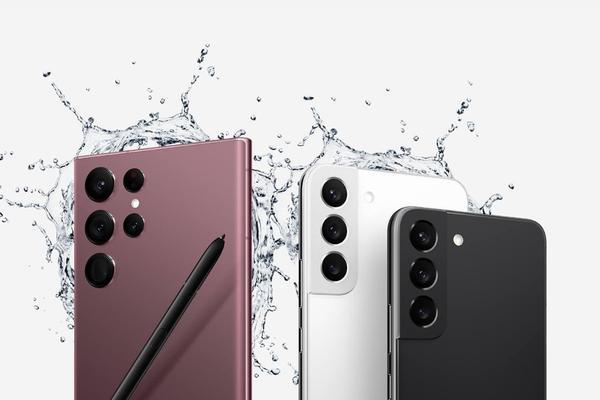
5G service just got faster for some people. Here's why.
Samsung likes to make a big fuss about cameras, and that’s still true this year.
Story continues below advertisementThe big change for the smaller S22 is that Samsung used a higher-resolution sensor than before; it can capture 50 megapixels worth of the world in front of you, although it processes all that data in a way that spits out lovely 12-megapixel photos. Beyond that, you’ve got a perfectly serviceable ultrawide camera and a purely passable telephoto camera; it can’t capture as much detail as the one found in last year’s model.
The S22 Ultra, meanwhile, offers the most flexibility I’ve seen in a smartphone camera system since last year’s model. The main camera uses a 108-megapixel sensor (which also produces 12-megapixel stills), along with the same ultrawide camera as the S22 and a pair of telephoto cameras that let you zoom in as much as 100x. Yes, the result is as cool — and potentially as creepy — as it sounds.
Both of these phones also take extremely nice photos in low light, thanks to their large main camera sensors and a little software trickery. A built-in “Adaptive Pixel” mode combines visual information from two photos into a single image that looks slightly better than either of the originals.
AdvertisementStory continues below advertisementSamsung’s phone cameras used to be notorious for making things in photos look more vivid and colorful than reality. These days, I’d argue that Apple has taken that crown, for better or worse. Meanwhile, Google’s Pixel phones use lots of clever AI tricks to produce detailed photos, but they can sometimes look a little too pristine — a side-effect of algorithms trying to correct more than they should.
If you really care about photos, take some time and pore over sample images from different phones online. That way, you’ll get a sense of what you like, what you don’t and what phones can deliver for you.
We’re all about helping you get the most from your tech for as long as you can, and regular software updates play a big part in how long your phone stays usable.
AdvertisementStory continues below advertisementIf you buy a Galaxy S22, Samsung says you’ll get four years of major Android software updates and five years of security updates. That’s the best software promise you’ll find from any Android phone maker out there right now — it even edges out what Google offers for its new Pixel phones. (Most other makers of Android devices are pretty lousy at this.)
In fact, Apple is the only company out there doing better on this than Samsung. The iPhone 6s, a device that was released in the fall of 2015, is still getting new versions of iOS. That’s the standard to which every other gadget maker should meet, and Samsung is getting pretty close.
If there’s one reason I’d hesitate to buy either of these phones right now, it is battery life — the very reason I couldn’t live with Samsung’s fancy Galaxy Z Fold 3.
Here’s my rule of thumb for batteries: If you use your phone for a full day, forget to charge it before bed, and wake up to find some juice left in the tank, that’s good battery life. If your phone gets you deep into day two, that’s great battery life. Neither of these phones’ battery is even close to great.
Since I started testing it, I haven’t been able to count on the Galaxy S22 to last a full working day without having to plug it in at least once. That hasn’t been much of a dealbreaker for me, since I still spend most of my time within the same four walls, but it doesn’t bode well for lives lived mostly outdoors. And although Samsung’s Ultra model usually lasted through the night on a single charge, I was hoping for much better.
AdvertisementStory continues below advertisementAfter all, it has an absolutely enormous battery by smartphone standards; it can store more energy than either of Apple’s iPhone 13 Pro models, but both of them — yes, even the smaller one — have outlasted the Ultra on a single charge.
iPhones, Pixels, Flips: What to know about the top smartphones of 2021
On paper, Samsung’s new phones aren’t exactly cheap: Prices range from $799 for the smallest S22 all the way up to $1,199 for the Ultra model. Here’s a tip from someone who has seen more smartphone launches than he’d care to admit: Never buy a new Samsung phone at full price.
Maybe it’s because its biggest rival, Apple, sells iPhones in mind-boggling quantities. Or maybe it’s because Samsung will have a new batch of phones to push later this year, so the window for selling its existing models is smaller than it is for other companies. Either way, brand-new Samsung phones never stay at their list price for long. There’s always some kind of deal or promotion going on, and they frequently offer credit equivalent to a few hundred dollars off the price tag. (There are a few of these deals going on even now.)
Time (and the many Android blogs that keep tabs on pricing) are your friend. Take advantage of them, and don’t let anyone persuade you to upgrade before you ferret out a good deal.

